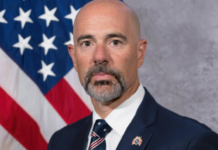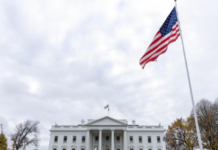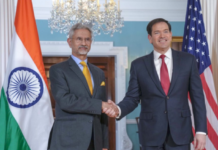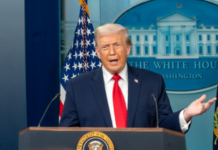NEW YORK– U.S. Secretary of State Marco Rubio has reiterated President Donald Trump’s claim that his administration helped broker an end to hostilities between India and Pakistan, prompting a subtle but firm response from the State Department that dismissals of the claim are merely “opinions.”
“We prevented and ended a war between India and Pakistan,” Rubio declared during an open cabinet meeting on Tuesday, as he listed the Trump administration’s diplomatic achievements in its first six months.
State Department Spokesperson Tammy Bruce referenced the statement during her regular press briefing later that day. A Pakistani journalist challenged the claim, using derogatory language toward members of Indian Prime Minister Narendra Modi’s cabinet, and insisted they had denied any U.S. role in mediating the conflict.
Bruce responded, “Donald Trump is here to help make that easier and to help use this to make things clearer. Secretary Marco Rubio is in the same position. The Vice President of the United States was also involved in the negotiations with Pakistan and India — JD Vance.”
Indian officials have consistently rejected the idea of U.S. mediation. Prime Minister Modi, in a recent phone call with Trump, reportedly told him directly that there was no third-party involvement or trade discussions as claimed. During his visits to New York and Washington, External Affairs Minister S. Jaishankar publicly reiterated that there was no mediation, emphasizing that India and Pakistan handled the situation bilaterally.
Jaishankar also noted that the ceasefire was agreed upon after a direct call between Pakistan’s Director General of Military Operations, Major General Kashif Abdullah, and his Indian counterpart, Lieutenant General Rajiv Ghai.
Bruce, addressing the Pakistani journalist in a lengthy and somewhat indirect response, refrained from naming anyone specifically or issuing a direct rebuttal. Instead, she commented, “The world is playing out in front of us in real-time on big screens and small screens. Everyone will have an opinion. That’s an opinion. Some opinions are wrong.”
“Mine rarely are,” she added, “but other people’s opinions can be wrong. But that’s what we get to do — analyze and judge — and the fact is, we understand every day what’s happening in front of us with clarity.”
In a more philosophical aside, Bruce reflected on the evolution of media, saying, “TV technology has changed since my childhood to now — we can watch broadcasts on our phones. It shows how fast things change and how much information we have access to. We need to make up our own minds about the world.”
Despite the claims, there has been no public evidence — televised or otherwise — of direct intervention by Trump or his officials in resolving the India-Pakistan conflict.
The Pakistani journalist also mentioned that Pakistan’s military chief, General Asim Munir, had nominated Trump for the Nobel Peace Prize.
Bruce appeared skeptical of that outcome. “I think the President has made it clear he doesn’t expect ever to win something like that,” she said.
“But he deserves every prize. He deserves this one for the Abraham Accords,” she continued. “There are many things he deserves, and I don’t know whether he’ll ever get them in this world.”
She concluded, “But what he has received is the greatest prize of all — the presidency of the United States.” (Source: IANS)














